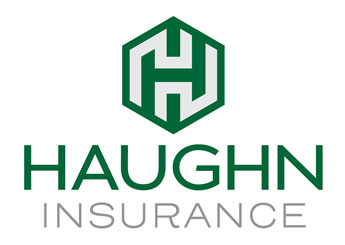
A self-insurance plan can be a useful tool for employees and employers looking for an alternative insurance plan. For most individuals, one of the most important benefits of employment is health insurance, which provides enhanced financial protection and accessibility to health services. Employers have two basic options for offering employees health insurance: a fully-insured or self-insured plan.
Self Insurance Plan: The Basics
Most large employers utilize the self-insured option, a self-funded insurance plan.
What Is a Self-Insurance Plan?
With a plan like this, the employer utilizes its funds to cover medical claims from employees. Most businesses that self-insure employ an insurance company or an independent third party to administer their plan but utilize their own funds to pay all employee claims. It differs from fully-insured plans in which the employer uses health insurance coverage purchased from a commercial insurer, which transfers the risk and responsibility of employee medical claims to the insurer.
How Common Is Self-Insurance?
Historically, only the most prominent companies with over 1,000 employees could afford to self-fund their insurance plans. However, the rising cost of healthcare over the last decade has encouraged smaller businesses to work out self-funded insurance plans of their own. A 2021 analysis by the Kaiser Family Foundation shows that most large companies employing over 200 workers utilize these type of plans. 64% of U.S. employees covered under their employer’s insurance program are in a self-insured plan. It is because more giant corporations have more significant financial resources to assume the risk accompanying the responsibility for employees’ health claims.
How Does It Work?
For employers with the funds available, self-insuring offers financial savings and a variety of options for creating customized health plans to fit the needs of both the employer and employees. The employer establishes a plan document that specifies provisions. The self-insurance plan has its own assets generated from employee contributions and sometimes additional contributions from the employer. These are different forms of funding from the main assets of the business. Likewise, they are used to pay for medical claims according to the provisions outlined in the plan.
Rules and Regulations
The state generally regulates fully-insured healthcare plans. Self-insured plans, by contrast, are federally regulated and not bound by state oversight or insurance laws. Federal laws and provisions that apply to self-funded insurance include the following:
- The Employee Retirement Income Security Act (ERISA)
- HIPAA provisions that protect employees with pre-existing medical conditions or other issues with the medical history
- ACA provisions that prevent waiting periods for those with pre-existing conditions
- Pregnancy Discrimination Act requiring employers with 15 or more workers to provide maternity coverage
- COBRA applies to businesses with 20 or more employees
- The Families First Coronavirus Response Act requires cost-sharing to be waived during the COVID health emergency, enabling employees to receive free COVID testing and office visits.
- Multiple Affordable Care Act provisions
Most large companies can create robust benefits packages that include generous health insurance. If the business can afford to assume the risk, the flexibility of this type of plan can benefit both the employer and the employee.
About Haughn & Associates
Founded by Michael Haughn in 1986, Haughn & Associates is a full-service, family-owned, independent insurance agency based out of Dublin, Ohio. H&A strives to provide the best possible price and unique insurance solutions across a myriad of industries, including construction, IT, Habitation & Commercial Property, Agriculture, and Engineering. Devoted to providing the best of business insurance, life and disability insurance, personal insurance, employee benefits, and bonds, H&A is proof that success lies in long-standing client relations and satisfaction. To learn more about how H&A can be of service to you, contact us at (877) 802-2278.

